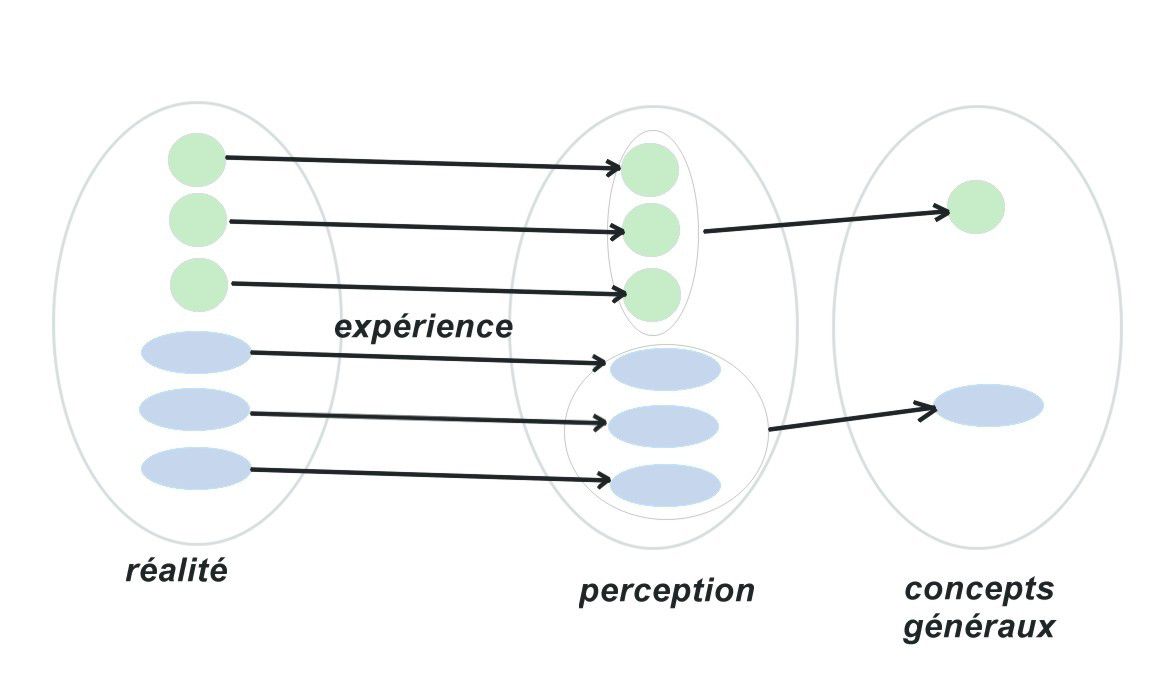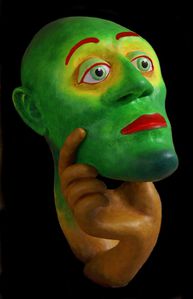
Common sense thinks that reality in its form is intelligible to us.
The idea is that, thanks to our senses and experimental means we are experiencing different attributes of the objects of the world, of its laws and we detect characteristic invariance of the attributes and their variations
Our conviction is that there is a one to one relation between a thing of the formal world and our perception (or immediate concept) of this thing.
This implies in the first place that the predicate of unity (of thing-one) attached to our immediate concepts has its equivalent in the observed world
This a priori intuition is based on the fact that the attribute of unity appear to remain true in a very extensive range of points of view, an range that sometimes covers the entirety of our experience.
On the basis of this invariance we can idealize our immediate perception of things-one in the general and universal concept of "thing-one" which is strictly speaking the foundation of any arithmetic, logic, and therefore mathematics and science.
Therefore, we think that the mathematical expression of the relations between our general concepts, beyond its empirical effectiveness, is applicable “by law” to the relations between real things.
We believe that the rigor and predictability that are attached to our arithmetic and our logic (based on the absolute truth of the predicate of unity) should apply in the same way to the real world.
So the common idea that the world is intelligible to us, although it is questioned by science and metaphysics, gives ground "by law” to the following properties of reality:
- The separability of the object and the subject,
- The separability between things,
- The possible identity of two things,
- The separability of reality in “objects”, “attributes” and “interdependencies”,
- The calculability of the laws of reality,
- The foundation of the reality.

It is this paradigm that is called into question. For the Ontology of the Meaning (OdS) we shall distinguish the reality (inform) from the existence (formal).
For a formless reality, without an a priori ordered space, possesses infinity of infinity of orders.
The things of the world come to exist in their forms by the order appearing into any "point of view", that is to say any representation.
Each of our states of mind is a point of view, an ordered logical structure.
Representation is at the same time my existence and that of the formal world.
I exist only as a point of view, by the ordered form that I give to the world, and the formal world exists only by the ordered form that I give it.
I exist by what I comprehend and the world exists by what I comprehend.
It does not mean that the OdS is a neo-Platonism, or a neo-Kantism
The articles
They are the contingent consequences of our own logical constitution which itself is a contingent consequence of evolution leading up to us.
The a priori forms of our perception and the general concepts that we draw from them are only eigen-solutions, attractors, theorems which appear in the logical theory in act of which the “I am” is the prime axiom.
The predicates of our representation are not determined by real qualities of real things in vis-à-vis. These predicates are singularities in a formless and endless logical field whose the "I who thinks” is the logical epicentre. These predicates are the horizon over which my thought, my world, my physical being and my subjective “I” draw themselves.
The thing-one of our perceptions only has in vis-à-vis a random and infinite logical field. This immediate perception is not the simple consequence of signals emitted by an object in reality, but the fusion of a barely imaginable bundle of logical relations which placed us in the same reality endowed with compatible laws, ourselves endowed with a sensibility, armed with the necessary concepts, etc.
All these logical relationships are the reality vis-à-vis our perception and it is out of all this set that contingently emerge the logical attractors that make our immediate perception.
The OdS is not solipsism for our perceptions are shared.
Our spirits have for "substance" a logical field that includes, beyond the horizon of the “I who thinks”, all reality they are interdependent with.
The individuated part of this logical reality is only a tiny proportion of the reality of which our spirits are interdependent.
It results that the differences between perceptions according to my successive points of view, according to our points of view and even according to all humanly possible points of view appear quite tiny in proportion to invariance.
One shall also understand that our perception of a form and its invariance are not fortuitous for reality is not a space, there is no a priori order to make possible a measure and therefore to identify invaraince,
Meaning is not the result of selection of invariance among the variable, it has the nature of this very invariance. Meaning and invariance co-emerge from the reality of which we are interdependent.
Thus, in the formal world of our representations, invariance is the rule and change is only a residue, what remains when all things are represented; so much so that certain a priori forms seem to us universal; so much so that the world seems to us made of things that are and happen to change.
But then, if the invariance of common sense representation is so robust, what is the practical contribution of the OdS ?
- The OdS integrates relativity de facto. The unity of the object is depending of the logical structure of the point of view and its relation to reality.
- For the OdS , the predicate of unity is a truth emerging to infinity. The unity of the object is never complete.
- There is no foundation to reality, no predicate or prime attribute, the complete description of a being would be an infinite process because its logical reality has no bottom. Only our knowledge of reality is limited by a horizon.
- The isomorphism between our mathematical models and the real is "by nature” an approximation. Any logical or mathematical proof to infinity is by nature questionable.
- Our interdependence with reality is purely logical. Space and the laws of change are a residue of the representation of things, the order according to which beings born from our point of view seem to order and change.

 L'UNIVERS N'A PAS LA FORME
L'UNIVERS N'A PAS LA FORME
